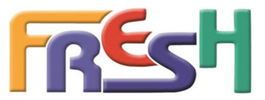Cross Cutting Themes in the FRESH Framework
The 2014 FRESH Core Indicators document included a short list of "cross-cutting themes" that have an impact on the implementation and sustainability of both the core components of the framework as well as all thematic or topic-focused initiatives. This page introduces a revised list of themes and indicators developed by the FRESH Partners in 2020.
The 2014 FRESH Core Indicators document included a short list of "cross-cutting themes" that have an impact on the implementation and sustainability of both the core components of the framework as well as all thematic or topic-focused initiatives. This page introduces a revised list of themes and indicators developed by the FRESH Partners in 2020.
|
The cross-cutting themes identified and described in the original version of the FRESH Framework included; partnerships with the education sector, community participation/ownership and child/youth participation.
This expanded list of cross-cutting themes is based on a discussion of implementation/capacity/sustainability issues held by the FRESH Partners in March and May 2019. That discussion gradually broadened into a set of themes related to using a systems-based approach to school health promotion and social development. FRESH Members, experts and practitioners were invited to comment on this list and the related specific indicators.We were careful not to reinvent any themes and indicators that have already been published in existing global guidance documents. Indeed, we have grouped these sources together within the document. . We will continue to update and revise these cross-cutting themes and indicators as new research or guidance documents become available. We welcome your comments on this current set of these themes and indicators (You can leave your comments in the space below. |
Cross-Cutting Themes in the FRESH Framework
Download the document The following cross-cutting themes should be considered as guiding principles or essential elements of the core and topic/thematic indicators of the FRESH Framework: 1. Understanding the Context to Focus Resources on Priority Needs
|
